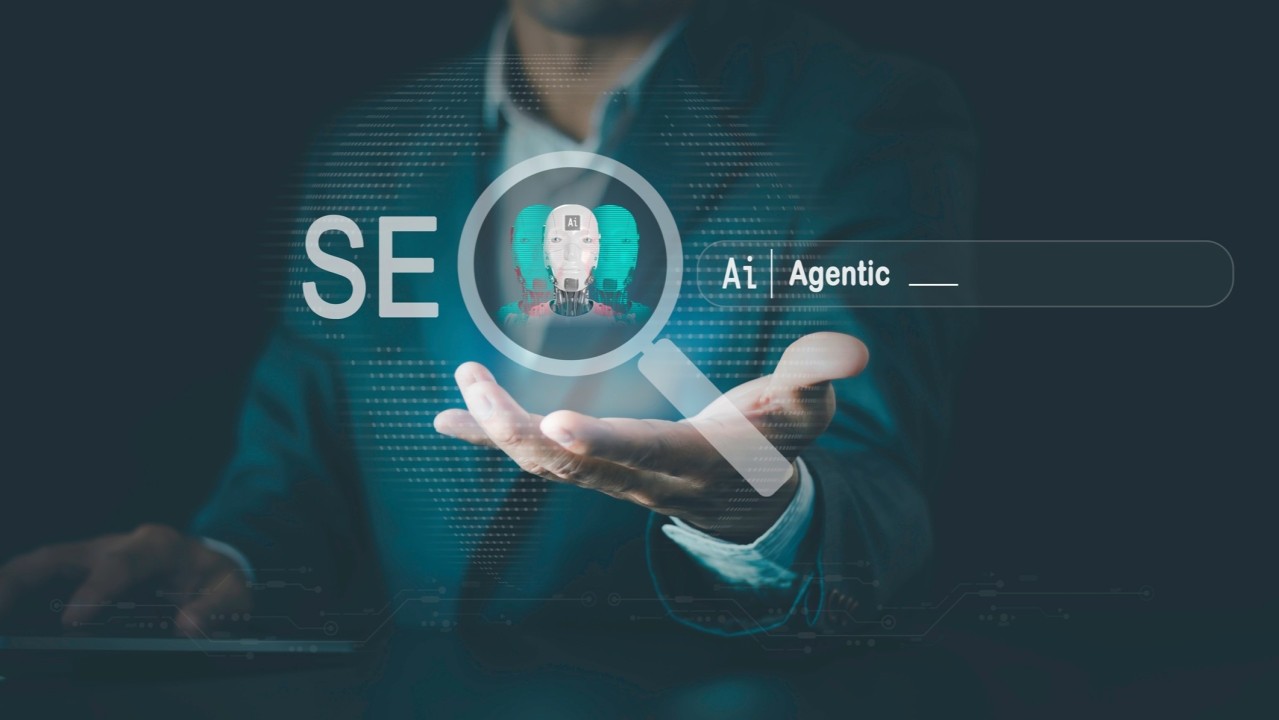News
Harnessing AI: Transforming Web Design and Development in 2024
In 2024, web design and development is undergoing a significant transformation, propelled by the unprecedented capabilities of artificial intelligence (AI).
This technological revolution is not just about automation but also about enhancing creativity, efficiency, and user experiences in profound ways. AI’s impact on web design and development is akin to the industrial revolution of the past, reshaping industries, redefining roles, and setting new standards for what is possible.
This article delves into the multifaceted ways AI is revolutionising the business of web design and development, with a particular focus on the UK market, enhancing user experiences, and improving operational efficiency.
The AI Revolution in Web Design
AI-Powered Design Tools
AI-powered design tools are at the forefront of this transformation. Tools like Adobe Sensei, Figma, and Wix ADI leverage machine learning algorithms to assist designers in creating visually appealing and functional websites. These tools can analyse vast amounts of data, understand design patterns, and even predict user preferences, enabling designers to create more personalised and engaging web experiences.
In the UK, businesses are rapidly adopting these tools to stay competitive. According to a report by Tech Nation, over 60% of UK businesses have integrated AI into their operations, with web design and development being one of the primary areas of focus. This trend is expected to grow as AI tools become more sophisticated and accessible.
Enhancing Creativity
One of the most significant impacts of AI in web design is its ability to enhance creativity. AI can handle repetitive and mundane tasks, allowing designers to focus on more creative aspects of their work. For instance, AI can automate the process of resizing images, generating colour palettes, and even suggesting design layouts based on user data. This not only speeds up the design process but also frees up time for designers to experiment with new ideas and push the boundaries of creativity.
Furthermore, AI tools can provide designers with insights into design trends and user behaviour, enabling them to make data-driven decisions. For example, AI can analyse user interactions with a website and suggest design improvements to enhance user engagement. This iterative process ensures that websites are continuously optimised for user experience, leading to higher conversion rates and customer satisfaction.
Transforming Web Development
AI in Coding
AI is also transforming the coding aspect of web development. Traditional coding requires a significant amount of time and expertise, but AI-powered code generators are changing the game. Tools like OpenAI’s Codex can write code based on natural language descriptions, making it easier for developers to create complex functionalities without having to write every line of code manually.
In the UK, the demand for skilled web developers continues to rise, with an estimated 1.3 million tech jobs available in 2023. AI-powered coding tools can help bridge the skills gap by enabling less experienced developers to create high-quality code and reducing the workload for seasoned professionals. This not only improves efficiency but also democratizes web development, making it more accessible to a broader range of people.
Automated Testing and Debugging
One of the most time-consuming aspects of web development is testing and debugging. AI-powered tools can automate these processes, identifying bugs and performance issues faster and more accurately than human developers. For instance, tools like Testim and Mabl use machine learning algorithms to create automated test cases and execute them across different browsers and devices. This ensures that websites are thoroughly tested and optimised for all users, regardless of their device or browser.
Automated testing and debugging also lead to significant cost savings for businesses. According to a study by the National Institute of Standards and Technology (NIST), software bugs cost the US economy an estimated $59.5 billion annually. By automating the testing and debugging process, businesses can reduce the number of bugs in their software and minimise the associated costs.
Enhancing User Experiences
Personalisation
Personalisation is a key aspect of modern web design, and AI is making it easier than ever to create personalised experiences for users. AI algorithms can analyse user data, such as browsing history, preferences, and behaviour, to deliver tailored content and recommendations. This not only improves user engagement but also increases the likelihood of conversions.
For example, AI-powered recommendation engines, like those used by Amazon and Netflix, can suggest products or content based on a user’s previous interactions. This level of personalisation creates a more engaging and enjoyable experience for users, leading to higher customer satisfaction and loyalty.
In the UK, businesses are increasingly leveraging AI for personalisation. A survey by Econsultancy found that 74% of UK marketers believe that personalisation is essential for improving customer experience, and 63% are using AI to deliver personalised experiences.
Chatbots and Virtual Assistants
AI-powered chatbots and virtual assistants are becoming an integral part of web design, providing users with instant support and assistance. These tools use natural language processing (NLP) to understand and respond to user queries, offering a seamless and efficient way for users to get the information they need.
Chatbots can handle a wide range of tasks, from answering frequently asked questions to assisting with online purchases. This not only improves the user experience but also reduces the workload for customer support teams. According to a report by Juniper Research, chatbots are expected to save businesses $8 billion annually by 2024, with the UK being one of the leading adopters of this technology.
Virtual assistants, like Apple’s Siri and Google’s Assistant, are also becoming more sophisticated and capable of handling complex interactions. These tools can integrate with websites and apps to provide users with personalised recommendations, reminders, and other useful information. This level of convenience and efficiency is becoming increasingly important for businesses looking to stay competitive in the digital age.
Improving Efficiency
AI in Project Management
AI is also transforming the way web design and development projects are managed. AI-powered project management tools can analyse project data, track progress, and predict potential issues, enabling teams to stay on track and meet deadlines. These tools can also automate routine tasks, such as scheduling meetings and sending reminders, freeing up time for project managers to focus on more strategic aspects of their work.
In the UK, businesses are increasingly adopting AI-powered project management tools to improve efficiency and productivity. A survey by Deloitte found that 40% of UK businesses are using AI in their project management processes, with 70% reporting significant improvements in efficiency and project outcomes.
Resource Optimisation
AI can also help businesses optimise their resources, ensuring that they are used effectively and efficiently. For example, AI-powered tools can analyse data on resource utilisation and identify areas where resources are being underutilised or overutilised. This enables businesses to make data-driven decisions about resource allocation and optimise their operations.
In the context of web design and development, resource optimisation can lead to significant cost savings and improved project outcomes. For example, AI-powered tools can analyse data on server usage and identify opportunities to optimise server configurations, reducing hosting costs and improving website performance.
As AI continues to evolve, its impact on web design and development is expected to grow even more profound. Here are some of the key trends to watch in the coming years:
AI-Driven Design Systems
AI-driven design systems are expected to become more prevalent, enabling designers to create complex and dynamic websites with ease. These systems use AI algorithms to generate design elements and layouts based on user data and preferences, creating a more personalised and engaging user experience.
Augmented Reality and Virtual Reality
AI-powered augmented reality (AR) and virtual reality (VR) technologies are expected to become more integrated into web design and development, creating immersive and interactive experiences for users. These technologies can be used to create virtual showrooms, interactive product demonstrations, and other engaging experiences that enhance the user experience.
Voice User Interfaces
Voice user interfaces (VUIs) are becoming increasingly popular, with AI-powered voice assistants like Amazon’s Alexa and Google’s Assistant leading the way. VUIs enable users to interact with websites and apps using natural language, creating a more intuitive and convenient user experience. As AI continues to improve, VUIs are expected to become more sophisticated and capable of handling complex interactions.
The integration of AI into web design and development is revolutionising the industry, enhancing creativity, improving efficiency, and creating more personalised and engaging user experiences. In the UK, businesses are rapidly adopting AI-powered tools and technologies to stay competitive and meet the growing demands of the digital age.
As AI continues to evolve, its impact on web design and development is expected to grow even more profound, creating new opportunities and challenges for businesses and designers alike. By harnessing the power of AI, businesses can create more innovative and effective web experiences, driving growth and success in the digital age.
In this rapidly changing landscape, staying ahead of the curve requires a commitment to continuous learning and adaptation. Businesses and designers must remain vigilant and open to new technologies and approaches, embracing the transformative potential of AI to create a brighter and more dynamic future for web design and development.
By leveraging AI, the UK is well-positioned to lead the way in this exciting new era of web design and development, setting new standards for creativity, efficiency, and user experience. As the technology continues to evolve, the possibilities are endless, and the future of web design and development looks brighter than ever.





The Ultimate Social Media Guide
With the ever-growing power of social media, we use the latest techniques, video, and animation software to craft eye-catching social media assets that make your brand pop. Our designers, wielding Adobe Creative tools, create distinctive animations and graphics to illuminate your brand story and highlight your products or services. Want a unique design? No problem – we also offer bespoke designs to match your brand aesthetic.